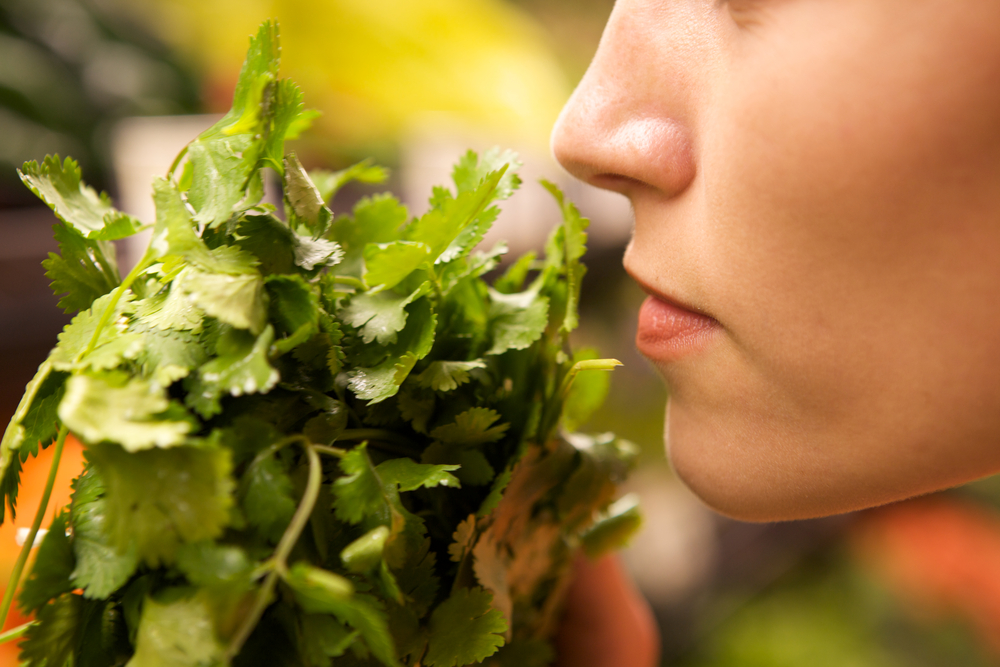Through the COVID-19 pandemic, there is currently increased attention for loss of taste and smell, one of the possible consequences of an infection with the virus. ‘Some 5 to 20 per cent of the Dutch population has a diminished sense of smell or taste’, says Elbrich Postma. ‘This may be caused by a common cold, an accident or ageing.’ Postma graduates from the Human Nutrition and Health group on 15 January.
Loss of smell and taste is of particular concern in patients, as this may cause them to eat less and thus hamper their recovery. Postma studied a group of 105 people suffering, in some cases for many years, from a diminished sense of smell. However, she discovered that this did not affect their eating behaviour. They appeared to eat according to the nutrition guidelines to the same degree as the control group with a normal sense of smell..
Despite the patients indicating they could not smell anything, their brain responded to scent
Elbrich Postma, PhD candidate at Human Nutrition and Health
Patients did indicate that eating was less pleasant. ‘Loss of smell appears to have a lesser effect on the actual food intake, but more on how this is experienced. However, these subjects suffer from a reduced sense of smell for a longer period, they may have consciously chosen to eat healthily despite not enjoying the flavour as they might.’
Brain responds to scent
Postma also investigated how the patients’ brains responded. They were asked to “smell” certain scents while placed in an MRI scanner. This revealed something remarkable. ‘Despite the patients indicating they smelled nothing, their brain responded to scent: there was activity in the areas of the brain linked to smell. Indeed, the patients that scored highest on the test showed the most brain activity.’
The brain appears to respond to scent, but the person is not aware of this response. ‘These people were previously able to smell, so it is possible that the brain still reacts out of some sort of reflex, even if the patient is not aware.’
Training
According to Postma, this provides insight into possible therapies. ‘It is possible to train your sense of smell. It may be interesting to investigate further to discover where in the brain, the issues occur.’ Moreover, it is vital to keep in mind how people experience their food. ‘During my research, I discovered that health workers consider this a difficult subject in their interaction with patients because not much is known about it. Creating awareness on how reduced sense of smell impacts food experience, and how you can still enjoy food, is important.’
The PhD candidate is currently studying the loss of smell and taste in corona patients. ‘This is a remarkable group because the loss of smell does not result from nasal congestion, as is the case with flu-viruses.’ She will study how the loss of smell and taste in this group develops and whether this symptom may be used to diagnose infection early. So far, this seems possible.

 Photo: Shutterstock
Photo: Shutterstock